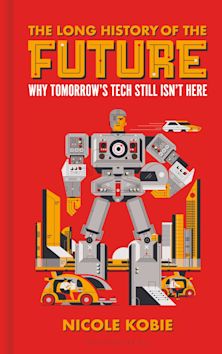Motor Vehicles, the Environment, and the Human Condition
Driving to Extinction
Motor Vehicles, the Environment, and the Human Condition
Driving to Extinction
Description
The world now has more than a billion motor vehicles, and this number continues to increase as developing countries imitate developed societies in their adoption of the culture of automobility. This book explores the political ecology of motor vehicles in an era of growing social disparities and environmental crises, the latter of which are most manifest in anthropogenic climate change to which motor vehicles constitute a major contributor. A political ecological perspective recognizes that motor vehicles, perhaps more than any other machine, embody the social, structural, cultural, and environmental contradictions of the capitalist world system. In addition to highlighting many of the environmental, social, and health, environmental consequences of humanity’s increasing reliance on motor vehicles, particularly private automobiles, this book argues that ultimately we need as a species to move beyond motor vehicles as much as possible but that such an effort will have be part and parcel of creating an alternative world system based on social justice, democratic processes, environmental sustainability, and a safe climate, one termed democratic eco-socialism.
Table of Contents
Chapter 1 – The Political Economy of Motor Vehicles
Chapter 2 – Cultural Tropes Associated with Motor Vehicles
Chapter 3 – The Political Ecological Impact of Motor Vehicles on Settlement Patterns
Chapter 4 – The Impact of Motor Vehicles on the Natural Environment
Chapter 5 – The Political Ecological Impact of Motor Vehicles on Health
Chapter 6 – Case Studies of Motor Vehicles in Various Places
Chapter 7 – Beyond the Automobile Motor Vehicle
Chapter 8 – Creating a Sustainable Transportation System within the Context of an Alternative World System
References
About the Author
Product details
| Published | 09 Oct 2019 |
|---|---|
| Format | Ebook (Epub & Mobi) |
| Edition | 1st |
| Extent | 258 |
| ISBN | 9781793604897 |
| Imprint | Lexington Books |
| Illustrations | 12 tables; |
| Series | Environment and Society |
| Publisher | Bloomsbury Publishing |
Reviews

ONLINE RESOURCES
Bloomsbury Collections
This book is available on Bloomsbury Collections where your library has access.



































